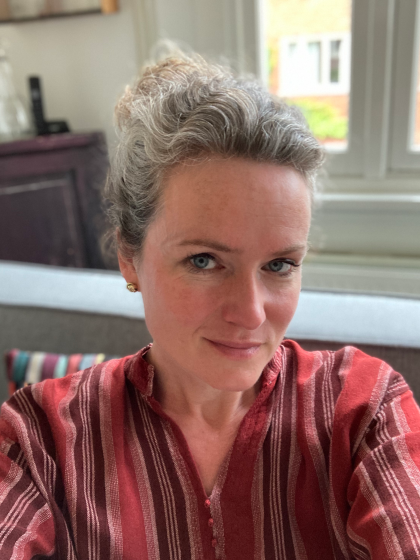dr. J.J.H. (Jacqueline) Klooster

The Revisionist Muse: Modern retellings of Greco-Roman Myth from a female perspective
I received a LIRA fonds scholarship for the writing of a popular science book on this theme in 2022.
Since a couple of years, there has been a remarkable explosion of popular novels which rewrite ancient Greco-Roman myths from a female perspective. What can we learn from this about the importance of collective memory, rewriting, criticism, creativity, and market mechanisms for discussing societal issues? Which implicit and explicit gender norms from ancient myths are addressed by these rewritings? Which changes in narrative structure and perspective do they entail? Who are target and actual audiences of this literature? How does reading the rewritings influence modern views of ancient myths? And why are Greco-Roman myths singled out for re-writing?
After an international conference at KNIR in October 2023, I am now writing a monograph on this book. I have also been interviewed a number of times, both for radio (Spraakmakers and Radio Swammerdam) and national or regional media (a.o. Volkskrant, Dagblad van het Noorden, de Standaard).
Leadership and Literary Art: how the ancient world evaluated literature written by its political leaders
I received a Marie Curie/Pegasus FWO fellowship for this project (2012-2015), as well as a NIAS fellowship (2021-2022).
In the modern world the figure of the poet-dictator is all too familiar. The lyrics of Mao Zedong and Joseph Stalin, the novels of Benito Mussolini and Saddam Hussein and the infamous Green Book of Muammar Gaddafi represent but a small selection of the corpus of dictatorial literature. It is difficult to separate our evaluation of these writings from that of the leadership qualities and inhuman ideologies of their authors. Yet a number of intriguing questions remain: why did these men write what they did? And what can their efforts tell us about the function and status of literature? Can our literary judgment ever be wholly separate from political ideology?
The ancient world too was familiar with the phenomenon of the leader-author, and hence with similar questions. A number of prominent leaders, both ‘good’ and ‘bad’ ones, produced poetry, autobiographies, philosophical treatises, historical and scholarly works: Solon, Dionysius I, Caesar, Cicero, Nero, Marcus Aurelius, to name the most famous. The main questions this research project focuses on are: how did Greeks and Romans regard leaders who were also literary artists? Or, how does the evaluation of political leadership interact with the evaluation of literary art? What can these evaluations teach us about changing leadership values? And what, in turn, do they reveal about the development of the (political, ideological, social) functions of literature?
see Homer and the Good Ruler .
A monograph on this theme is due to appear with Routledge 2025.
SKO/STQ-project: The Implementation of Active Learning in the program of Greek and Latin Languages and Cultures (completed September 2023).
Organisation of the Hellenistic Workshops ( Hellenistica Groningana )
After the Crisis (completed, running time 2015-2019)
See our dedicated website: www.afterthecrisis.nl and the Bloomsbury volume: After the Crisis
| Last modified: | 24 January 2024 12.06 p.m. |
